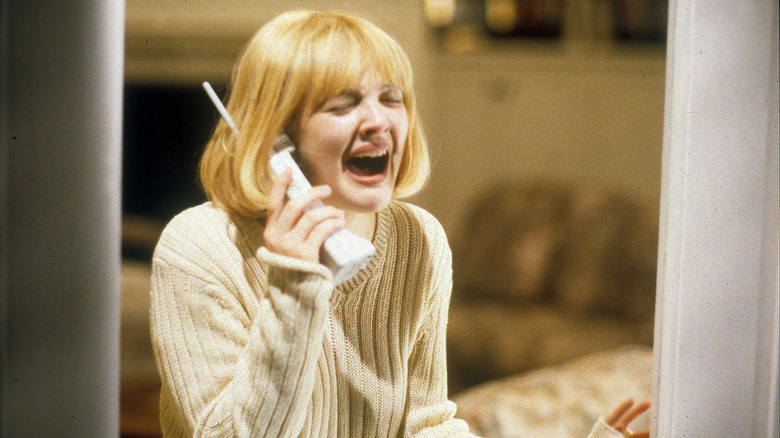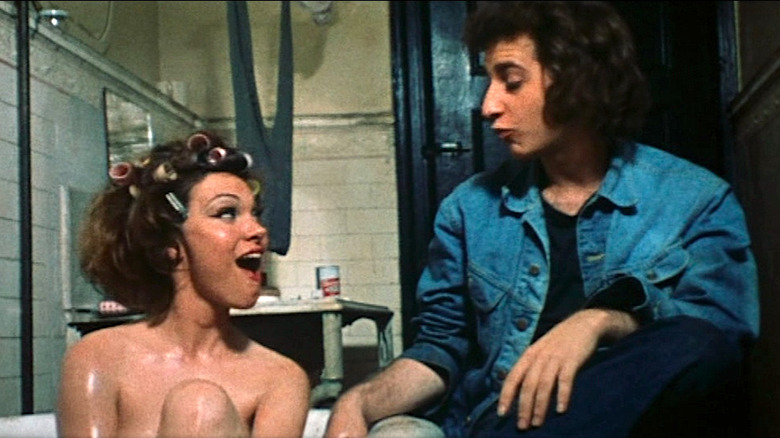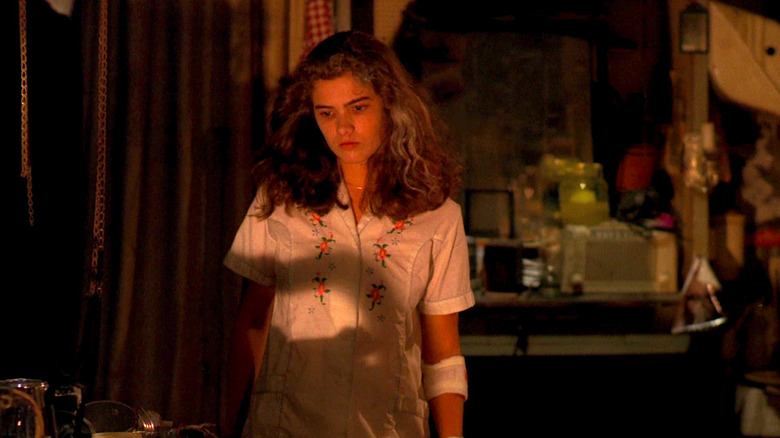Wes Craven's Exodus From One Community Kickstarted His Love For Film
When you think of horror directors, there's often the impulse to assume that all of them have nursed a burning passion for the dark and scary since they were little kids reading issues of "Creepy" or "Weird Tales" in their bedrooms. And it is true that there are some directors who got into the horror genre because they wanted to, but there are also those who wound up amongst the screams and the scares just by chance.
Wes Craven had an extremely prolific and influential career as a director. He is probably most well known for creating the iconic "A Nightmare on Elm Street" series, about Freddy Krueger (Robert Englund), a violent murderer with a freaky glove who kills people in their dreams. And if you don't think of Freddy Krueger first, you probably think of the "Scream" franchise, of which he directed the first four entries. There's also "The Last House on the Left," "The People Under the Stairs," "The Hills Have Eyes," "The Serpent and the Rainbow," and more, just in case his bonafides as a horror legend aren't clear.
Considering his career trajectory, it is amazing then that Craven never intended to become a director, least of all one who made horror movies. In fact, he was headed down a very different path before a major change in his life completely rearranged his future career, directing him instead to a life dedicated to film.
The man before the movies
As a child, Wes Craven grew up in a very religious family. In an interview for The Front, Craven (who passed away in 2015) explained, "I grew up in the Baptist Church, so no listening to records or watching movies, along with alcohol and dancing and everything else." He was only allowed to watch Disney films, and because of this, he initially dreamed of one day becoming an animator for the super successful animation titan. "I saw every Disney film that came out," he says. "I drew and drew and drew."
Eventually though, Craven's focus started to shift. He began to develop an interest in writing, and when he went off to college for the first time, he decided to pursue a major in literature. "I was a lit major and nobody in my family ever went to college, so I was kind of an odd duck," he says. This passion for literature and writing continued for many years, and Craven eventually ended up getting two masters degrees in philosophy and literature. He told The Front:
"A friend of mine told me that a master's qualifies you to teach college. I said, "Really!?" So I applied to a bunch of colleges, and this is how my whole life was at the beginning, blindly following instincts and leads. I didn't get in anywhere and I was being trained to sell rare coins at a department store in Baltimore.
His interest in rare coins was purely for financial purposes, though. His true passion was still to become a writer. That is until he finally started watching movies other than Disney for the first time in his adult life.
A change in direction
Before his almost-stint as a seller of rare coins, Craven experienced a life changing event during his time as an undergrad at Wheaton College. He described his college to the Front, saying:
"I went to an inter-denominational school, Billy Graham alma mater. If you were caught in a movie theater you would be expelled. They had almost the exact same rules I grew up with. Sex was not mentioned.
Because of this strict environment, the school kept a close eye on their students and the types of things they were involved with. Craven recalled his senior year when he was "denounced from the pulpit in chapel" simply because he made the decision to include a piece of writing that mentioned interracial marriage in a literary magazine he was a part of. "I was semi-radicalized [by this]. So I went to go see 'To Kill A Mockingbird,'" Craven said of these events.
He detailed that his decision to include this piece of writing in the lit mag was "clearly not" something sinful even though his school was saying it was. However, this dissonance of viewpoints completely changed his approach to the rest of his career. Over time, his exploration of film gave way to wanting to make movies of his own, and the rest is history.
Eventually, Craven found himself to be a full-fledged horror director, and he told The Front that his interest in horror most likely stems from his upbringing. "[Making horror movie is] partially a way to immune yourself from terror and fear," he says. "I'm sure there is a certain amount of anger and even rage in being raised in a way that says half of the great sources of inspiration and joy in life are sins and you burn in hell forever. I'm sure that had done a lot of psychic damage." Regardless of its affect on Craven's psyche, his strict religious upbringing helped set him on the path of a lifelong love affair with film.


